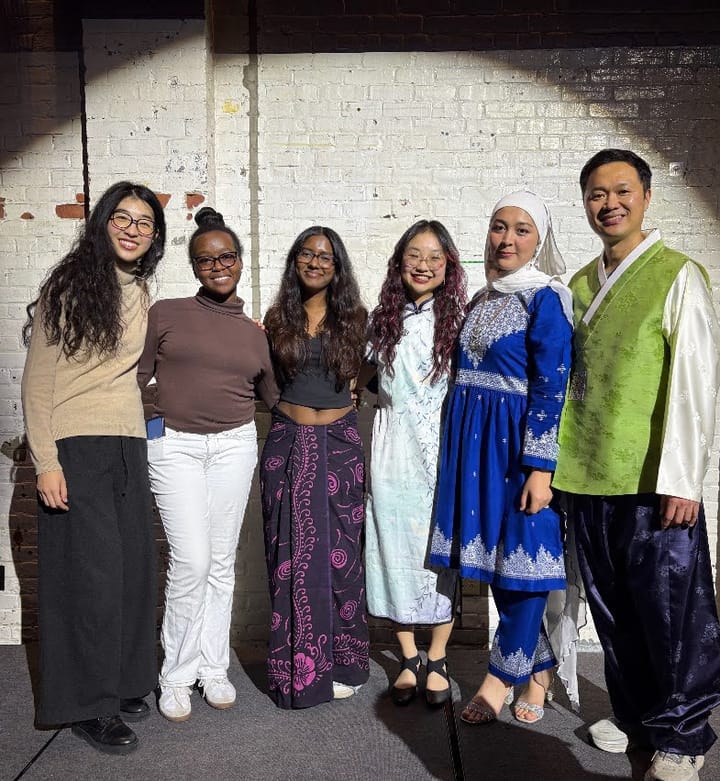Wong Fu Productions’ First Feature Film, “Everything Before Us”

Phillip Wang, Wesley Chan and Ted Fu, the filmmaking trio behind the popular YouTube channel Wong Fu Productions, have been creating comedy sketches, short films and vlogs since they were first-year students at University of California San Diego in 2003. After displaying their self-taught filmmaking talents on YouTube, Wang, Chan and Fu garnered an exceptionally large following of over 2.4 million YouTube subscribers. Wong Fu Productions creates online content that includes collaborations with Asian American actors, musicians and online personalities.
Since 2008, Wong Fu Productions has tirelessly attempted to get a script for a full-length feature film starring Asian-American actors off the ground. Last year, Wang told “The Hollywood Reporter” that, after pitching their idea of a romantic sci-fi movie with Asian-American protagonists to film producers, they received feedback saying it’s “just not good business.” Luckily for Wong Fu Productions, technological innovations have allowed them to create and release the film titled “Everything Before Us” for what Hollywood considers “non-traditional audiences.”
Recent online trends in video streaming and crowd-funding allowed the trio to make their filmmaking dreams come true. In 2014, Wang, Chan and Fu called on their large YouTube following to promote their film project, and they raised over $350,000 on the online fundraising site Indiegogo. In combination with a $100,00 grant they received from a media nonprofit, Wong Fu Productions gained the means to produce “Everything Before Us,” starring actors Aaron Yoo (“Disturbia,”) Brittany Ishibashi (“Political Animals,”) Brandon Hoo Soo (“From Dusk Till Dawn: The Series”) and newcomer Victoria Park. The film also features supporting performances from Randall Park (“Fresh Off the Boat”) and Ki Hong Lee (“The Maze Runner.”) “Everything Before Us” was released exclusively on Vimeo-On-Demand on June 3, 2015. However, the film was released this month on the popular movie-streaming service Netflix, allowing it to reach an even wider audience.
The film documents two couples’ tumultuous romances in a near-future society where relationships are tracked and bureaucratized by a government agency, the Department of Emotional Integrity (DEI for short.) In a world where one’s Emotional Integrity (EI) score is dictated by the stability of past or current relationships and their integrity in them, EI scores become public records that people are judged upon. Ben (Aaron Yoo) and Sara (Brittany Ishibashi) are former lovers who ended their relationship on bad terms, causing Ben’s EI score to plummet. Because Ben is up for his dream job, and his low EI score has the possibility of disqualifying his candidacy, he reconnects with Sara and asks that she help him officially resolve their relationship at the DEI office. Meanwhile, Seth (Brandon Hoo Soo) and Haley (Victoria Park) are two young lovebirds about to graduate high school. Haley gets into her dream school in San Francisco, and Seth does not. Knowing that he is in love with her, and wanting to keep their long-distance relationship strong, he asks Haley to register their relationship together before she leaves for college. Both relationships are challenged by the nature of their circumstances — challenges that are exacerbated by the hierarchy created by publicized EI scores.
Overall, I very much enjoyed watching “Everything Before Us,” and it is as cute and romantic as it is thought-provoking. Knowing the labor of love that went behind this film’s production made me appreciate the film’s beautiful cinematography, acting and writing even more. Watching the creative romantic storyline unfold also made me realize that “Everything Before Us” was probably one of the first instances where I’ve seen well-developed Asian-American characters in genuinely intimate relationships. Chan told “The Hollywood Reporter” last year: “We have a responsibility to our audience, who want us to perpetuate or strengthen Asian American [representation] in media.” By the numbers, the representations of people of color as characters in mainstream American film and television programs are bleak. The numbers of people of color in writing, directing and producing roles behind the camera are even bleaker. “Everything Before Us” is groundbreaking in its representation of Asian Americans both on and off the screen, and it is changing the narrative of how movies featuring people of color are made. My hope is that films such as these will continue to be made by talented filmmakers unwilling to let Hollywood’s archaic standards stop them, and that their success will influence mainstream media to transform its standards. With the evolution of communications technology and growing online video-streaming audiences, I believe that this hope is already in the process of being realized. Meanwhile, grab some popcorn and some friends and watch “Everything Before Us” on Netflix.





Comments ()